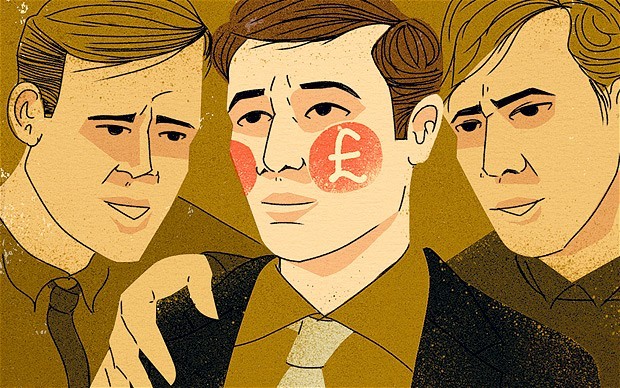Brazil might no longer be tiger but economy still has bite Olive
Post on: 16 Март, 2015 No Comment

On eve of World Cup, rumours of host country’s economic downfall are highly exaggerated — it’s still growing, just not as fast as it used to.
Dilma Rousseff, the Brazilian president, will do her best to disguise her mixed feelings on June 12 when she officiates at the opening ceremony of the 2014 World Cup tournament.
There might not be a more soccer-crazed country on earth than Brazil. It seems almost everyone in this immense country of 201 million people, fifth-largest in the world by population, plays the beautiful game. In the country where Pele will always be a national icon, pickup games abound in the favelas. or slum districts, of Rio de Janeiro and also in Suruaca, a village on the fringes of the Amazon rainforest, where a population of just 450 people manages to support two fiercely competitive soccer clubs.
And so the fans in the stands will be exuberant this Thursday, as the month-long tournament at venues across the worlds fifth-largest country by area hosts the worlds greatest strikers and goalkeepers. But 61 per cent of Brazilians, including those in attendance June 12 at the controversial Sao Paulo stadium itself symbolic of the construction fatalities. delays and cost overruns of Brazils Cup preparations have told pollsters they are dissatisfied with Brazils weakened economy and Rousseffs stewardship of it.
And thats not the limit of unrest, which has manifested itself in strikes and the largest street riots in two decades. Boondoggles and future white elephants abound. Many World Cup stadiums have been built in smaller Brazilian cities where the population base is too small to retire the debt accumulated in building enormous soccer venues.
During the economic boom of the 2000s. when Rousseff predecessor, Luiz Inacio Lula da Silva was president, lavish projects were launched, after what Lula explained had been two decades of non-investment in needed public infrastructure. Today, many of those projects lie abandoned or have stalled, now victims of thieves who scavenge metal from idled construction sites.
At the grandiose end of this spectrum of fiascos is Transnordestina, an intended 1,600-kilometre railway to carry soybeans to port. The project is almost two times over budget, at an estimated cost of $3.5 billion. And the most optimistic forecasts say the railroad wont commence operations until six years later than planned. Then there are newly built but non-functioning wind farms that cannot get their power to market for lack of transmission lines, even as factories worry about power rationing in the midst of a drought that has dried up reservoirs at hydroelectric dams.
At the farcical end of the fiasco spectrum is an unfinished UFO museum in the southeastern Brazilian city of Varginha, where locals say they say an alien in 1996. With billions of dollars of state funds diverted in a panic to complete both the World Cup facilities and those for the Rio Olympics a second mega-project just two years hence work on the UFO shrine has been halted. It consists now of little more than a rusting hulk that bears some resemblance to a flying saucer.
That museum, economist Robert Macedo of the University of Sao Paulo recently told the New York Times, is an insult to extraterrestrials and the terrestrial beings like ourselves who foot the bill for yet another project failing to deliver.
Yet the criticism of Rousseff, 66, is a tad overdone.
Yes, billions of dollars have been diverted from social improvement, including Rousseffs chief priority of education. But Rousseff, first elected in 2011, is loyal to mentor Lulas blueprint of using public funds to reduce the gap between rich and poor. Rousseff has continued with Lulas combination of income-support programs and job-creating infrastructure projects that have been completed and provide essential services. That relentless campaign, begun soon after Lula came to power in 2003, has lifted an estimated 30 million Brazilians out of poverty and into the middle class, even as the inequality gap grows in Canada, the U.S. and elsewhere.
Commentators outside Brazil bemoan its stagnant economy during the Rousseff years. In the past three years, annual GDP growth has averaged about 2 per cent per year, a stark contrast to the 7.5-per-cent growth rate of 2010. But Brazil, worlds seventh-largest economy (about 60 per cent larger than Canadas) has at least continued to grow, eclipsing the truly stagnant or shrinking GDPs of many European countries struggling with a sovereign debt crisis.
Both Brazilians and international investors, however, had grown accustomed to the lofty GDP growth rates of the Lula years, when Brazil was inducted by global investors into the so-called BRIC countries of emerging economic superpowers.
Yet one after another, those four erstwhile darlings of global investors have faltered. Chinas GDP growth rate has dropped by almost half. Indias economic growth rate has fallen even more sharply. Russias economy has actually shrunk. And Brazil, the B in BRIC, began to suffer its own slowdown when the export markets of North America, Europe and Asia on which an export-driven Brazil relies each succumbed to the Great Recession.

Today, Rousseff insists that You cant explain why Brazils economy has cooled down. There seems to be an ill will toward Brazil today, the president told a recent gathering of international journalists. Rousseff might have been thinking of outsider Standard & Poors cut in Brazils credit rating last month, citing many years of slow growth ahead.
There is no anti-Brazil sentiment. But the harmful factors are largely external. The slower-than-expected U.S. economic recovery is especially worrisome to policymakers in Braslia, the Brazilian capital.
Also frustrating is that Brazil is a democracy. Which means gridlock. Rousseff notes the current lack of consensus in the Brazilian Congress. Nobody does a (subway) in two years, she said recently. Well, maybe China. Thats the cost of our democracy.
BRIC was always a chimera. Every boom ends. It can be reasonably argued that the timing of Brazils World Cup and Olympic spending when anemic world markets began to shun Brazils exports has helped provide a soft landing and keep jobless rates from skyrocketing. The slowdown has also ensured that an inflation-prone Brazil has not endured another bout of hyperinflation, often a by-product of torrid growth.
Brazil retains its global leadership in environmental technologies. Building on its strength in civilian aerospace, Brazilian aviation giant Embraer SA, archrival to Montreals Bombardier Inc. is expanding into military aviation. Brazil now boasts one of the worlds most competitive workforces.
The exotic expectations of now disillusioned global investors are a head-scratcher, given their previous unwarranted hopes about Central European investments in the 1970s, which ended in a sovereign debt crisis, and the so-called tiger economies of the Pacific Rim in the 1980s, halted by a currency crisis that threatened world markets.
Nothing of that calamitous magnitude has occurred, nor will, in the land of Order and Progress (Brazils official motto) or, as Brazilians prefer, the country of soccer.














